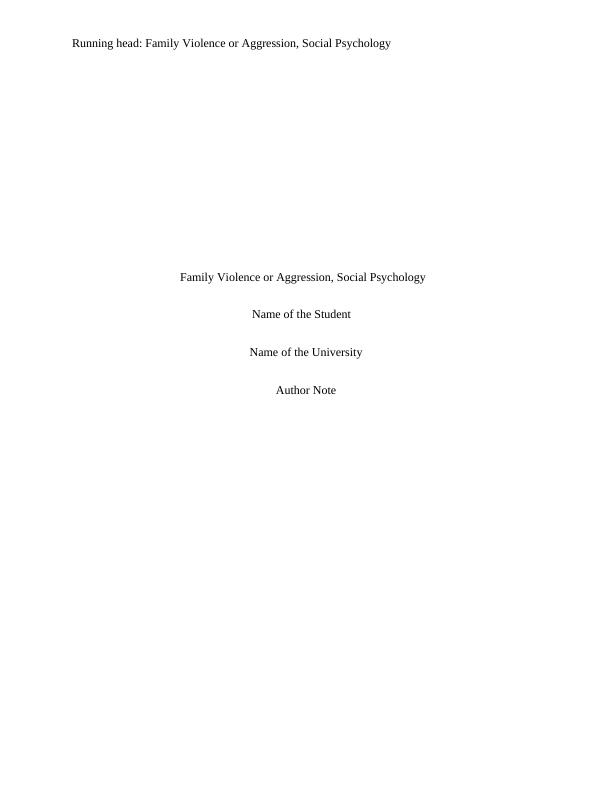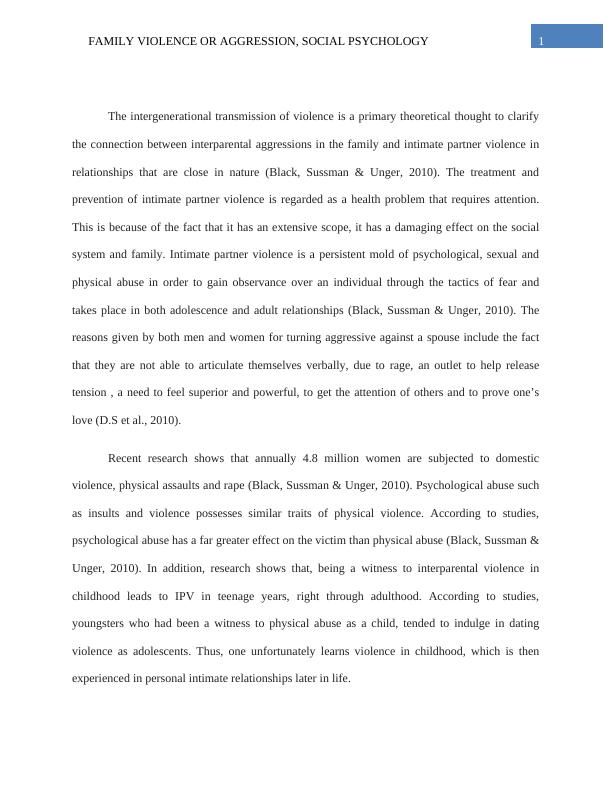Family Violence or Aggression, Social Psychology
Discussing the Intergenerational Transmission of Violence theory and providing a relevant paper on the topic.
4 Pages855 Words472 Views
Added on 2023-05-30
About This Document
This article discusses the intergenerational transmission of violence and intimate partner violence in relationships. It also covers the reasons for turning aggressive against a spouse, the effects of psychological abuse, and the impact on children who witness violence at home.
Family Violence or Aggression, Social Psychology
Discussing the Intergenerational Transmission of Violence theory and providing a relevant paper on the topic.
Added on 2023-05-30
ShareRelated Documents
End of preview
Want to access all the pages? Upload your documents or become a member.
Understanding Aggression and Violence in Society: A Social Psychology Perspective
|6
|790
|457
Partner Violence And Domestic Violence Report
|12
|3075
|22
Alcohol and Family Violence: A Social Psychology Perspective
|5
|901
|240
Domestic Violence: A Public Health Issue in Australia
|11
|2975
|425
Action Plans against Domestic Violence
|8
|2335
|23
Psychological Issues: Understanding Domestic Violence and Its Causes
|9
|2391
|306


